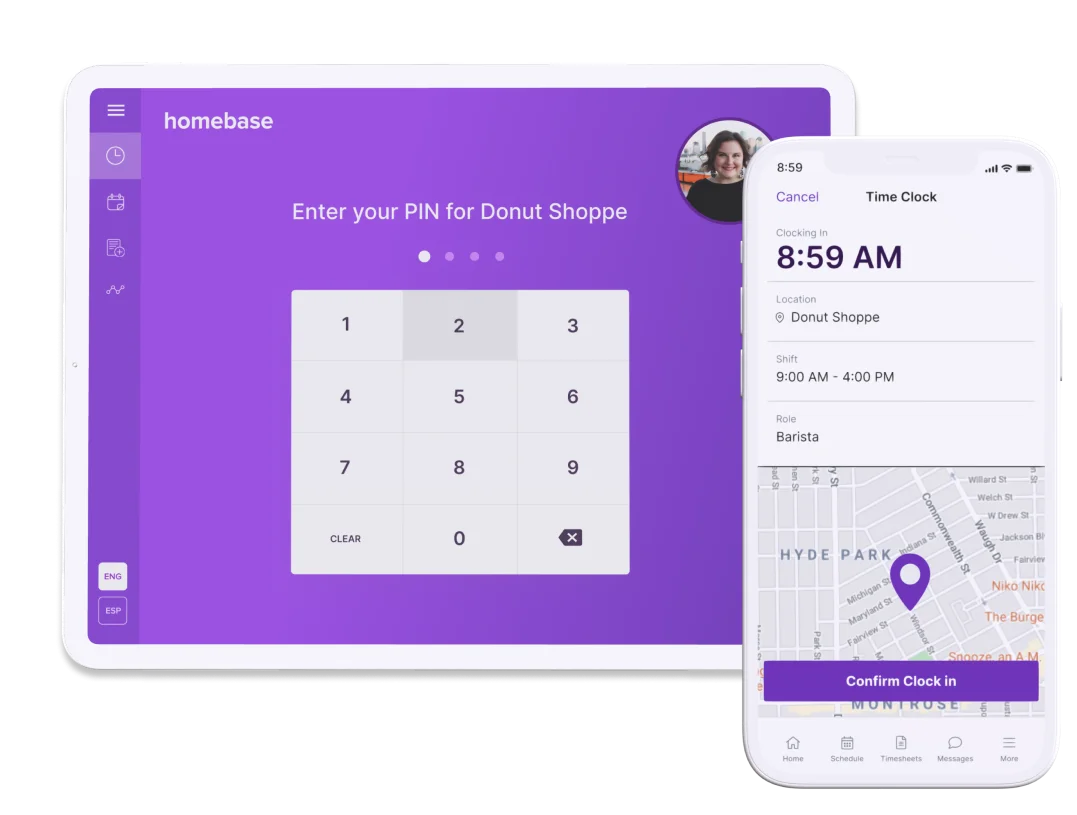Trusted by 150,000+ small businesses and their teams.






























Say goodbye to time theft.
Implement authentication and geolocation tracking to confirm all reported hours of your team.
- Avoid time theft and buddy punching by using unique PINs, pictures, or enabling clock in/out on your team’s devices
- GPS snapshots give you insight into whether your team clocks in or out from the right location
- Enable geo-fencing to restrict off-site clock-ins that could overstate hours

Guard against time theft, get control of labor costs.
Leverage automated alerts to secure accurate time reporting from staff.
- Get notified of clock discrepancies in real-time to confirm hours worked before processing payroll
- Receive overtime alerts proactively so you can prevent unapproved time inflation
- Deter manual reporting errors with automated clock reminders for employees

Staying on top of labor laws together.
Let’s make sure your time tracking keeps pace with regulation changes with Homebase.
- Get updated on evolving legislation so your systems enable compliance
- Create custom time-tracking policies with the help of HR experts
- Communicate policies and collect employee consent digitally to build trust and transparency

Don’t want to deal with time theft?
Get the Homebase time clock app and put the breaks on time theft today.
No credit card required.
Get started for free
Put a time clock in your team’s pocket.
Make time-tracking easier, download our free time clock app for iOS or Android today.








